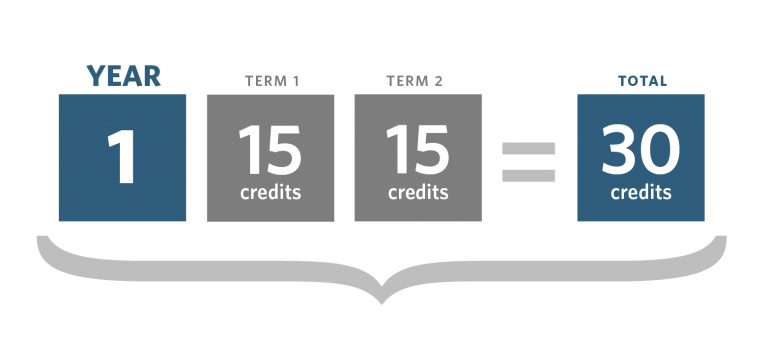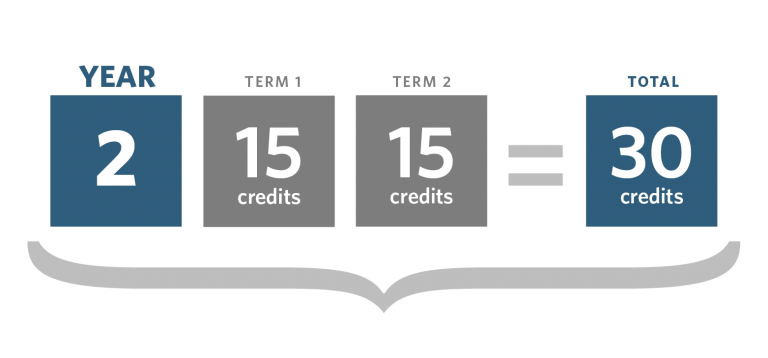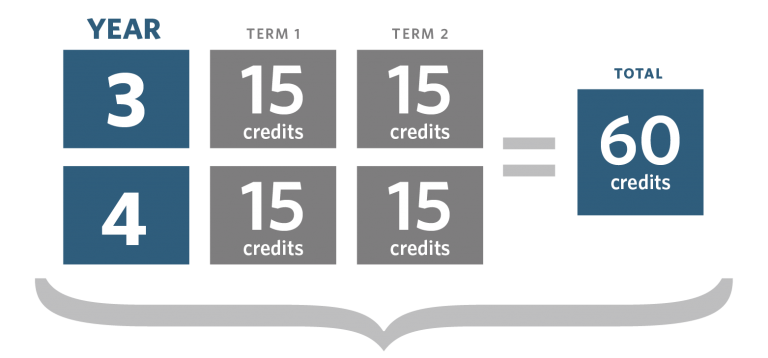Course Planning for the Bachelor of Management
Faculty of Management students in the Bachelor of Management program take a broad selection of elective courses in arts and sciences. A minimum 24 credits must be earned in Year 1, including all compulsory 100-level courses that prepare students for management studies to follow in subsequent years. We recommend students complete 30 credits in Year 1.

Year 1 Core Courses
| MGMT_O 100 Introduction to Canadian Business |
MGMT_O 110 Introduction to Management Thought & Social Responsibility |
ECON_O 101 Principles of Microeconomics |
ECON_O 102 Principles of Macroeconomics |
| ENGL_O 109, 112, 114 OR 6 credits ENGL_O OR 3 credits ENGL_O, 3 credits CORH Studies in Composition Studies in Composition: Aboriginal Perspectives OR Any 6 credits of English OR Any 3 credits of English AND any 3 credits of Communications and Rhetoric |
MATH_O 100 OR 116* Differential Calculus with Applications to Physical Sciences & Engineering OR Calculus I for Management & Economics* |
PSYO_O 111 Introduction to Psychology – Basic Processes |
STAT_O 121 OR 124* Elementary Statistics OR Business Statistics* |
* Preferred
Year 1 Elective Courses
In total, students must take 33 credits of electives (upper and lower level) outside of Management courses throughout the four-year program.
As you consider additional courses to complement your studies, consider the following list of recommended electives. You can choose to take any, none or all of these recommended lower level elective courses:
- ANTH_O 100 – Introduction to Cultural Anthropology
- CULT_O 100 – Media and Popular Culture in Global Context
- ENGL_O 1XX – any additional first-year English course
- MATH_O 142 – Calculus II for Management & Economics
- PHIL_O 120 – Introduction to Logic and Critical Thinking
- PSYO_O 121 – Introduction to Psychology: Personal Functioning
- SOCI_O 111 – Introduction to Sociology I
Students considering a minor are recommended to begin taking their required courses as of Year 1.
Please consult the University Calendar under Faculty of Management Degree Requirements for additional information.
Academic requirements
Student performance is assessed every year to ensure that students are meeting academic requirements. Achieving the required 60% or higher grade point average (GPA) in all compulsory courses will help with progression eligibility; those who do not meet academic requirements may experience a mandatory reduction in course load or mandatory withdrawal from the program. For specific course requirements (e.g., ENGL_O grade requirements), visit Academic Regulations in the UBC Okanagan Academic Calendar.
The second year of the program introduces fields of Management study with 21 credits of compulsory courses, building upon effective work habits gained in the first year of study.

Year 2 Core Courses
- MGMT_O 201 – Introduction to Financial Accounting
- MGMT_O 202 – Introduction to Managerial Accounting
- MGMT_O 220 – Introduction to Marketing
- MGMT_O 230 – Introduction to Organizational Behaviour
- MGMT_O 240 – Introduction to Management Communications
- MGMT_O 250 – Introduction to Information Technology Management
- COMM_O 398 – Indigenous Business (replaces MGMT_O 290)
Browse Management courses and descriptions
Year 2 Elective Courses
In total, students must take 33 credits of electives outside of Management study throughout the four-year program, and these can be lower (100 and 200) and upper (300 and 400) level courses. As you plan additional courses to complement your studies, consider the following list of recommended electives. You can choose to take any, none or all of the recommended lower-level elective courses:
- ANTH_O 100 – Introduction to Cultural Anthropology
- ENGL_O 1XX – any additional first-year English course
- MATH_O 142 – Calculus II for Management & Economics
- PHIL_O 120 – Introduction to Logic and Critical Thinking
- PSYO_O 121 – Introduction to Psychology: Personal Functioning
- SOCI_O 111 – Introduction to Sociology I
Students considering a minor are recommended to begin taking their required courses as of Year 1.
Please consult the University Calendar under Faculty of Management Degree Requirements for additional information.
Academic requirements
Student performance is assessed every year to ensure students are meeting academic requirements. Achieving a 60% or higher grade point average (GPA) in all compulsory courses will help with eligibility for progression; those who do not meet academic requirements may experience a mandatory reduction in course load or mandatory withdrawal from the program. For details, visit Academic Regulations in the UBC Okanagan Academic Calendar.
During your third and fourth years of study, you have the opportunity to explore a variety of subject areas alongside the required 300- and 400- level MGMT_O courses. A range of upper-level MGMT electives are offered, as well as electives made available through other Faculties. Your degree has space for you to choose courses that are of the most interest to you, enabling focused preparation for a specific career path, generalized studies to expand breadth of knowledge, or preparation for advanced studies. You are free to choose any set of elective courses, provided you meet course prerequisites and your degree requirements.
The program culminates with the required MGMT_O 490 Capstone Service Learning and Consulting course, a hands-on learning experience in which student groups address challenges faced by partner organizations, and propose practical solutions.

Year 3 + 4 Core Courses
- MGMT_O 310 – Introduction to Finance
- MGMT_O 355 – Operations Management
- MGMT_O 360 – Business Conditions Analysis
- MGMT_O 380 – Sustainability and Business
- MGMT_O 481 – Strategy and Change Management (replaces MGMT_O 360)
- MGMT_O 490 – Capstone Service Learning and Consulting
Year 3 + 4 Electives – exploring A VARIETY OF SUBJECT AREAS
The Bachelor of Management is a general management degree and does not have majors. Management subject matter is relevant to numerous disciplines and, accordingly, career possibilities for alumni are quite varied. When selecting electives, we encourage you to explore your interests and test your curiosity. Students have the option to supplement their degree with a minor. Further information about this offering can be found in the “Minor” tab on this page.
You must complete 60 credits of electives throughout your years of studies to graduate. The breakdown of electives includes:
- Lower and/or upper-level electives outside of Management subject area – 27 credits (typically 9 courses)
- Lower and/or upper-level electives either within OR outside of Management subject area – 6 credits (typically 2 courses)
- Upper-level Management electives – 18 credits (typically 6 courses)
- Upper-level electives in any subject area (can include Management but not required) – 9 credits (typically 3 courses)
Wondering which courses to take? The following summary provides you with some ideas on which electives to select, based on personal areas of interest and/or future career goals.
NOTE: The following is only guidance to help with Year 3 and 4 upper-level MGMT_O elective course selection; these interest areas do not appear on your official UBC record. You may notice that some courses apply to more than one interest area. Please note that most upper-level MGMT_O electives have course-specific prerequisites that must be met in order to register. Please see course descriptions in the Academic Calendar for more information.
| Interest Area | Courses to Consider |
| Accounting |
|
| Entrepreneurial Technology |
|
| Finance |
|
| Human Resources |
|
| Marketing |
|
| Operations / Supply Chain Management |
|
| Sustainability |
|
Non-MGMT Electives
We strongly encourage you to consider adding a minor as a complement to your BMGT degree.
When selecting non-MGMT_O electives, you might opt for courses that focus on particular topic areas that complement your MGMT_O electives; for example, if you are interested in finance and accounting courses, you may also be interested in economics (ECON_O) or philosophy (PHIL_O) courses. If you are interested in the areas of marketing or human resources, you may find that psychology (PSYO_O) and communications-based disciplines (e.g, English (ENGL_O) and Creative Writing (CRWR_O)) provide a nice complement to your studies.
Alternatively, you might prefer a more diverse approach in which you explore a variety of electives and customize your degree to your unique interests. Please note, courses in disciplines outside of MGMT_O typically have prerequisite requirements; please plan early to ensure that you have the foundational courses that will allow you to access upper-level courses in the disciplines of your interest.
To explore all of the courses offered at UBC Okanagan, including their prerequisites, please see the Academic Calendar.
When choosing electives, you might also find the following websites informative:
- American Marketing Association (AMA)
- Canadian Marketing Association (CMA)
- Chartered Financial Analyst (CFA)
- Chartered Professional Accountants (CPA)
- Chartered Professionals in Human Resources Canada
- International Institute of Business Analysis (IIBA)
- Information Technology Association of Canada (ITAC)
- Project Management Institute (PMI)
- Supply Chain Management Association (SCMA)
While completing the Bachelor of Management degree, students have the option to supplement their degree with a minor. There are 7 disciplines in which students can choose to minor:
Communications and Rhetoric
To complete a Minor in Communications and Rhetoric, students must complete 6 credits of ENGL_O at any level, or 3 credits of ENGL_O at any level and 3 credits of CORH_O at any level, plus an additional 24 credits of CORH_O as follows:
- At least 6 credits at the 200-level
- At least 15 credits from 300- and 400-level courses, which can include 6 credits from approved courses that double count with their Major program. See the list of approved courses here.
- 3 credit CORH_O 499, Communication Capstone.
Students may complete the 15-credit Certificate in Communications and Rhetoric, or complete an additional 9 credits to receive the Minor in Communications and Rhetoric, but cannot receive both.
Computer Science
To complete a minor in Computer Science, students must accumulate no fewer than 30 credits in Computer Science. At least 18 credits must be numbered 300 or above. This may require students to take additional credits of study.
Cultural Studies
To complete a minor in Cultural Studies, students must accumulate no fewer than 30 credits in Cultural Studies as specified below. This may require students to take additional credits of study.
- CULT_O 100, 101
- At least 6 credits of 200-level CULT_O
- At least 18 credits of 300- or 400-level courses applicable to the Major in Cultural Studies.
DATA SCIENCES
To complete a minor in Data Science, students must complete no fewer than 30 credits as specified below. This may require students to take additional credits of study:
- DATA_O 101;
- STAT _O 205 or 230;
- MATH _O 101;
- COSC _O 111;
- DATA _O 301 or COSC _O 301;
- DATA _O 311;
- 6 credits of upper-level DATA _O;
- 6 credits of 300- or 400-level coursework from the following:
- upper-level DATA _O or STAT _O courses;
- a maximum of 3 credits of MGMT _O 329D;
- a maximum of 3 credits from: COSC _O 304, 322, 329, 344, 421.
Economics
To complete a minor in Economics, students must accumulate no fewer than 30 credits in Economics. At least 18 of their credits must be numbered 300 or above. This may require students to take additional credits of study.
Geography
To complete a minor in Geography, students must accumulate no fewer than 30 credits in Geography as specified below:
- At least two of GEOG_O 108, 109, 128, 129;
- At least 3 credits of second-year GEOG_O;
- At least 18 credits of 300- or 400-level GEOG_O or GISC_O.
Psychology
To complete a minor in Psychology, students must accumulate no fewer than 30 credits in Psychology. At least 18 of their credits must be numbered 300 or above. This may require students to take additional credits of study.
Sociology
To complete a minor in Sociology, students must accumulate no fewer than 30 credits in Sociology as specified below. This may require students to take additional credits of study.
- SOCI_O 111, 121
- At least 6 credits of 200 level Sociology (excluding SOCI_O 202)
- 18 credits of 300 or 400 level Sociology
Planning for Your Minor
In order to complete a minor in any of the 7 disciplines, students must acquire a total of 30 credits from that discipline before graduation. Minors are declared via Workday in Year 2. For information on how to declare a minor, please visit this webpage for a tutorial. Once students declare their minor, we recommend they view their Academic Progress Report (APR) and/or visit an Academic and Career Advisor to ensure students complete the required credits to graduate with the minor on their transcript.
In order to successfully complete a minor within 4 years, it is highly recommended that students dedicate elective credits toward minor credits as early as Year 1.
Your course schedule will vary due to which minor you choose and which courses you choose. Because you are required to take at least 18, 300-level or above courses, be careful to complete the necessary pre-requisite (100 and 200 level) courses as early as possible to keep your degree and minor on track.
Course registration resources
-
- Faculty of Management Registration Information
- Browse Management courses and descriptions
- Plan to register
- Frequently asked questions about registration
- Academic Progress Report (APR)
Students Tracking to the CPA Professional Education Program
Students who want to pursue the Chartered Professional Accounting (CPA) designation after completing the BMGT are recommended to register in the following courses each year. Many upper-level MGMT_O courses have specific prerequisite courses that must be completed prior to registering. This recommended sequence ensures that you will meet all prerequisites.
In order to meet all the BMGT required courses and all the courses required for entry into the CPA Professional Education Program (PEP), students have little flexibility to complete a minor. Students wishing to complete a minor need to plan early and use their elective space in Year 1, 2, and 3 very carefully.
The following accounting courses can be used as prerequisite transfer credits to allow for direct entry into the CPA Professional Education Program (CPA PEP).
ACCOUNTING COURSE OPTIONS
- MGMT_O 300 – Intermediate Financial Accounting I
- MGMT_O 304 – Intermediate Financial Accounting II
- MGMT_O 401 – Intermediate Managerial Accounting
- MGMT_O 402 – Introduction to Income Taxes in Canada
- MGMT_O 403 – Auditing and Assurance Services
- MGMT_O 404 – Advanced Financial Accounting
- MGMT_O 405 – Advanced Managerial Accounting
- MGMT_O 437 – Intermediate Finance (previously MGMT 439E)
- MGMT_O 480 – Law and Business
Course |
BMGT Required Course |
Required for Entry to CPA PEP |
| MGMT_O 100 | Y | |
| MGMT_O 110 | Y | |
| ECON_O 101 | Y | Y |
| ECON_O 102 | Y | Y |
| ENGL_O 112 (or ENGL_O 114 or 6 credits of ENGL_O) | Y | |
| MATH_O 100 (or MATH_O 116) | Y | |
| PSYO_O 111 | Y | |
| STAT_O 121 (or STAT_O 124) | Y | Y |
| Elective | ||
| Elective |
Course |
BMGT Required Course |
Required for Entry to CPA PEP |
| MGMT_O 201 | Y | Y |
| MGMT_O 202 | Y | Y |
| MGMT_O 220 | Y | |
| MGMT_O 230 | Y | |
| MGMT_O 240 | Y | |
| MGMT_O 250 | Y | Y |
| MGMT_O 290 | Y | |
| Elective | ||
| Elective | ||
| Elective |
Course |
BMGT Required Course |
Required for Entry to CPA PEP |
| MGMT_O 300 | Y | |
| MGMT_O 304 | Y | |
| MGMT_O 310 | Y | Y |
| MGMT_O 355 | Y | |
| MGMT_O 360 | Y | Y |
| MGMT_O 380 | Y | |
| MGMT_O 480 | Y | |
| MGMT_O 329D or COSC_O 301 | Y | |
| Elective | ||
| Elective |
Course |
BMGT Required Course |
Required for Entry to CPA PEP |
| MGMT_O 401 | Y | |
| MGMT_O 402 | Y | |
| MGMT_O 403 | Y | |
| MGMT_O 404 | Y | |
| MGMT_O 405 | Y | |
| MGMT_O 437 | Y | |
| MGMT_O 490 | Y | |
| Elective | ||
| Elective | ||
| Elective |
Have a question or need help?
Transfer students
The Faculty of Management recommends prospective students looking to transfer to UBC for this program consult with the Faculty’s Academic Advisor prior to applying to the Okanagan Campus so they can ensure applicants are aware of the applicable program requirements and credit transferability.